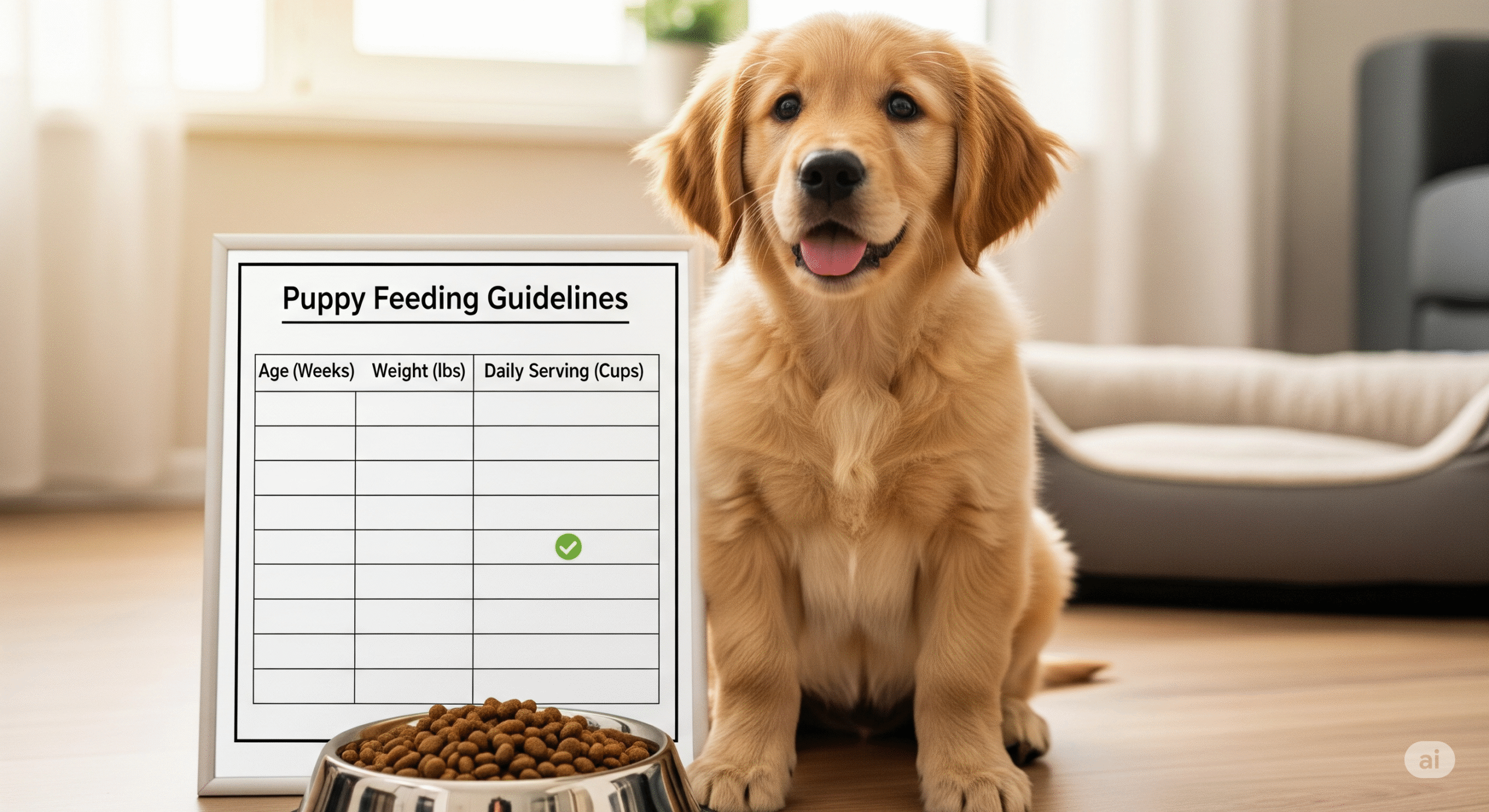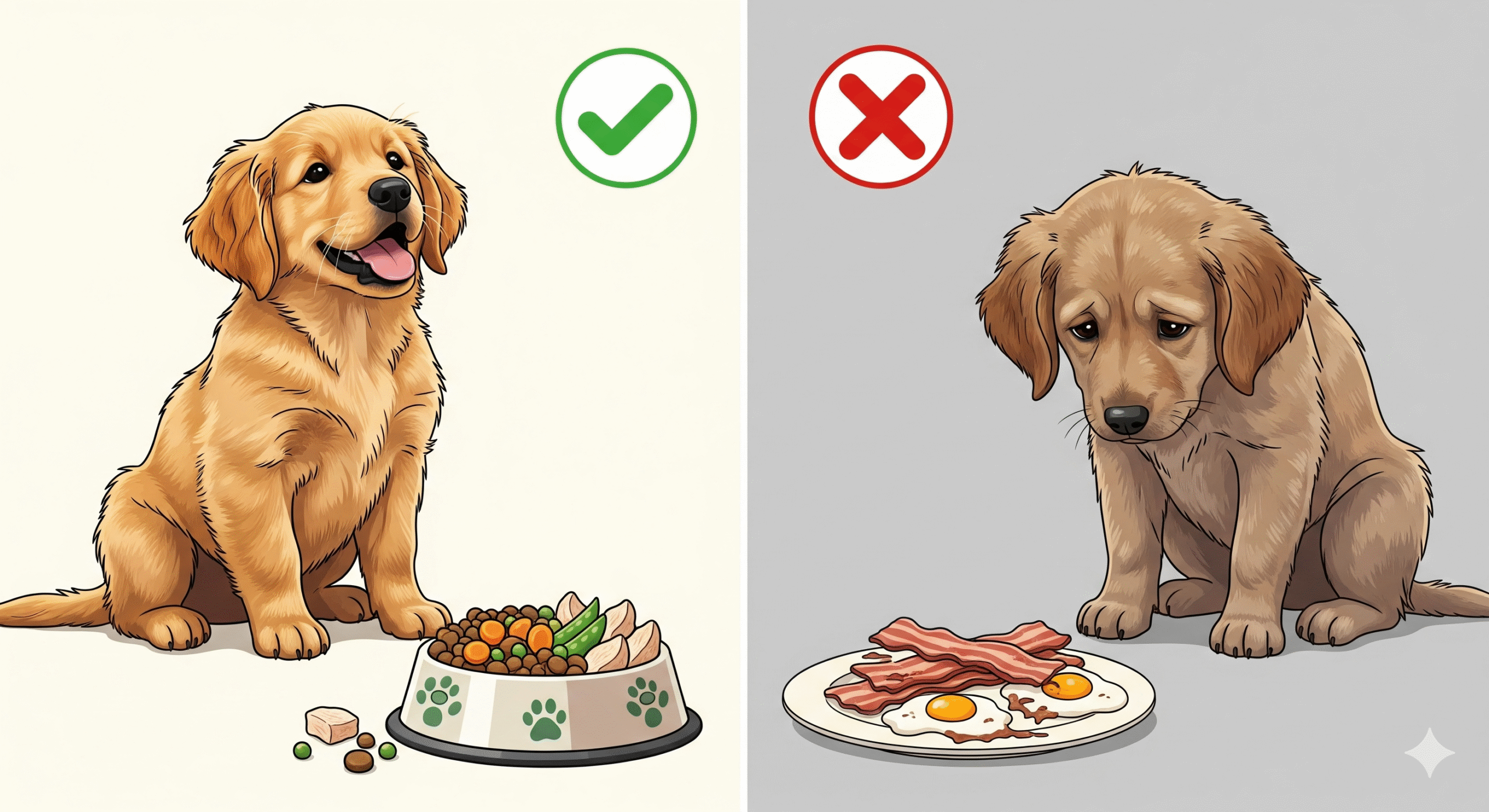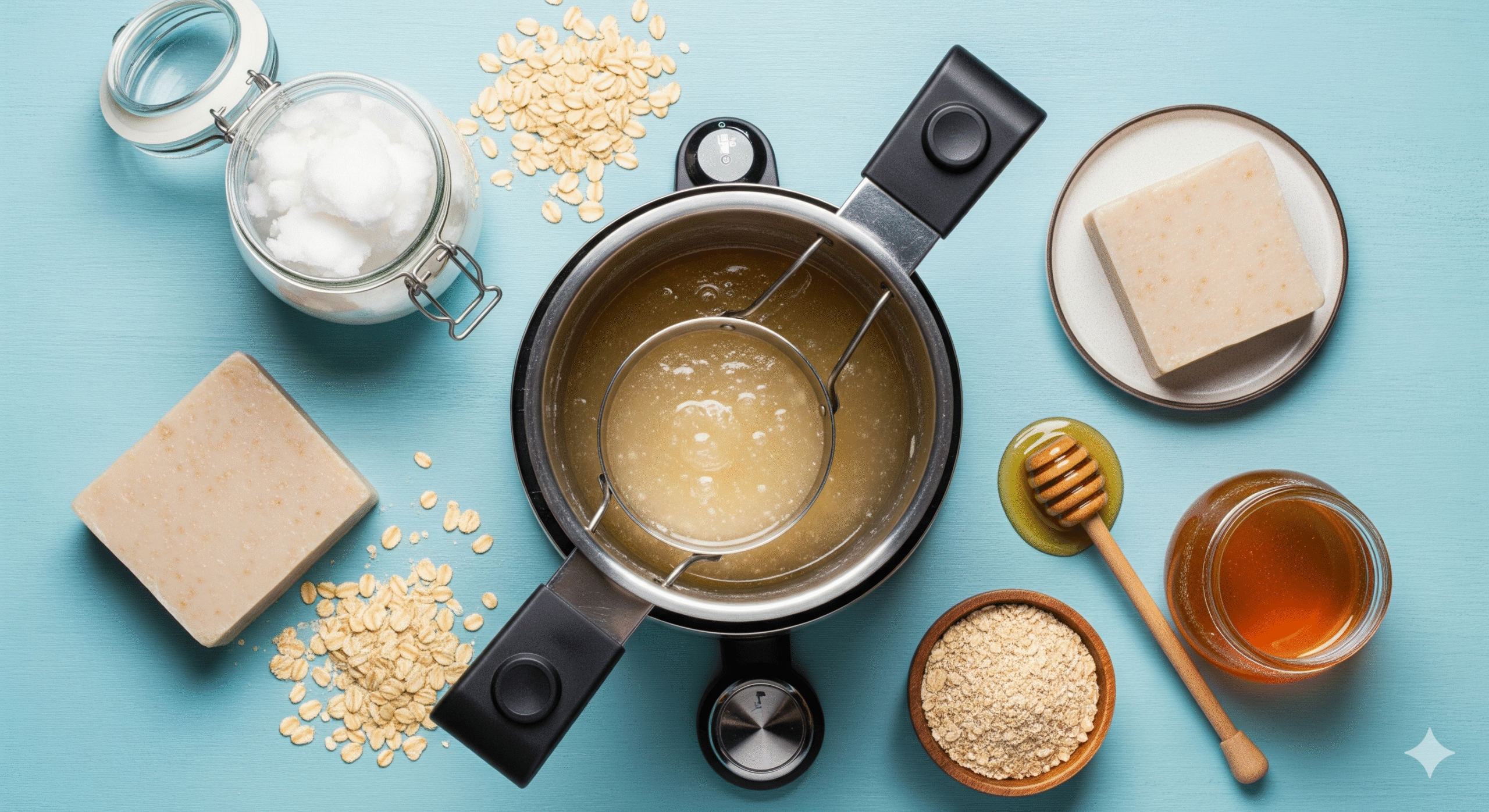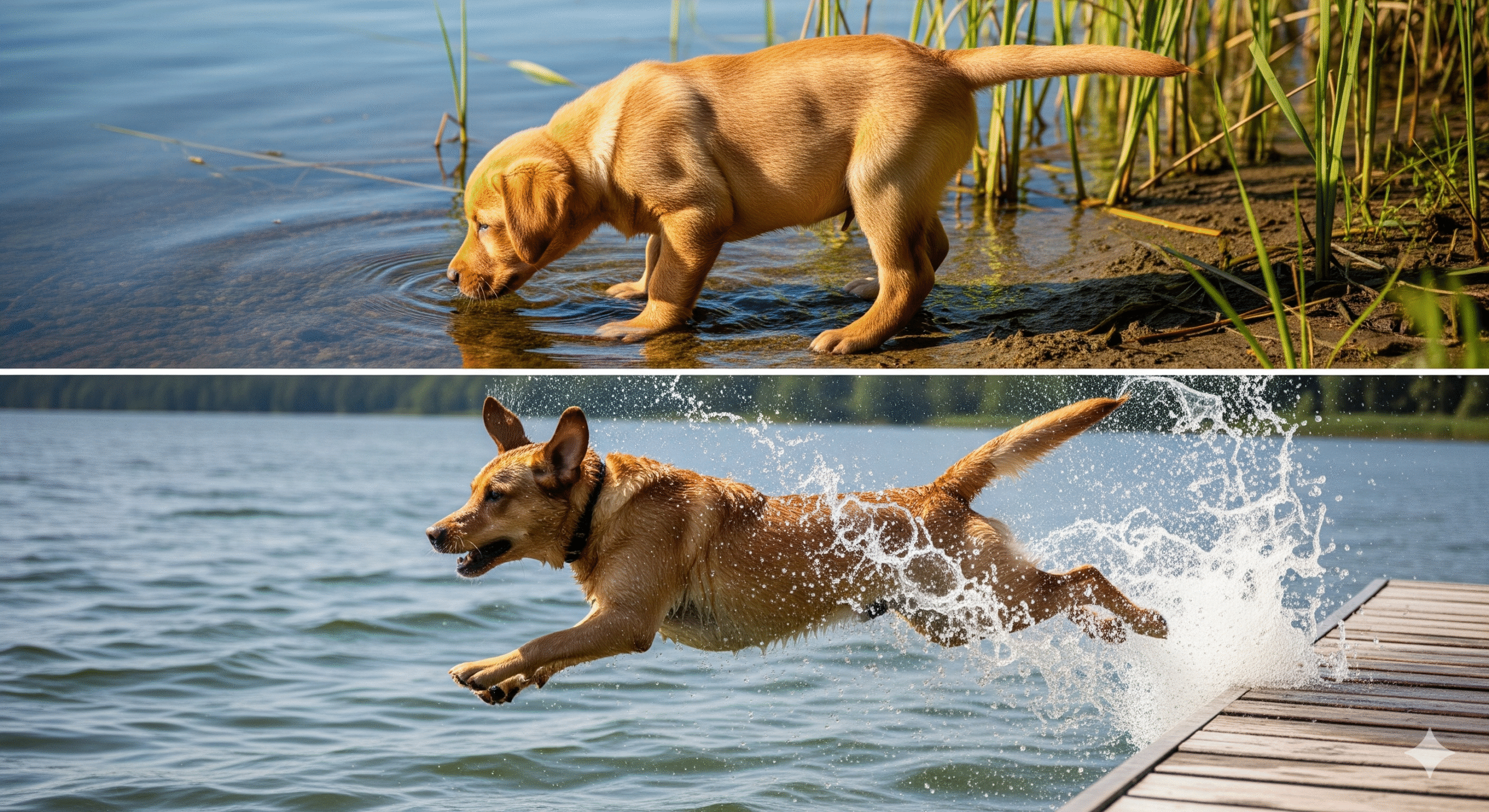Feeding your puppy the right amount is crucial for their healthy growth—but with so many variables (age, weight, breed size, and activity level), it’s easy to feel overwhelmed. Overfeeding can lead to obesity and joint problems, while underfeeding stunts development.
This vet-approved guide will show you:
✔ Precise daily portion sizes based on weight & age
✔ How often to feed at each life stage
✔ Special considerations for large vs small breeds
✔ Warning signs you’re feeding too much/too little
Let’s create the perfect meal plan for your growing pup!
Puppy Feeding Fundamentals 📚
Why Proper Portions Matter
- Bone development: Excess calories can cause rapid growth (especially dangerous for large breeds)
- Weight management: Puppies who become overweight have higher arthritis risk
- Digestive health: Scheduled meals prevent bloat (more common in deep-chested breeds)
Pro Tip: Always check your puppy’s food packaging for brand-specific recommendations, as calorie content varies.
Puppy Feeding Chart by Age & Weight 📊
General Daily Feeding Guidelines
*(Based on high-quality puppy food with 350-450 kcal/cup)*
| Age | Weight (lbs) | Cups Per Day | Meals Per Day |
|---|---|---|---|
| 8-12 weeks | 3-5 | ½ – 1 | 4 |
| 8-12 weeks | 10-20 | 1½ – 2½ | 4 |
| 3-6 months | 5-10 | ¾ – 1¼ | 3 |
| 3-6 months | 20-40 | 2½ – 4 | 3 |
| 6-12 months | 10-20 | 1 – 1½ | 2 |
| 6-12 months | 50-70 | 4 – 5½ | 2 |
Note:
- Small breeds (<20 lbs adult weight) can transition to adult food at 9-12 months
- Large breeds (>50 lbs adult weight) need puppy food until 12-24 months
Special Breed Considerations 🐕🦺🐩
Large/Giant Breed Puppies
- Require lower calcium (max 1.5%) to prevent joint issues
- Need slow growth formulas (look for “large breed puppy” labels)
- Sample Schedule:
- 3 months: 3-6 cups/day (divided)
- 6 months: 6-10 cups/day
- 12 months: 4-8 cups/day
Small/Toy Breed Puppies
- Prone to low blood sugar → need frequent meals
- Require higher calorie food (400-500 kcal/cup)
- Sample Schedule:
- 8 weeks: 4 meals/day (¼ cup each)
- 4 months: 3 meals/day (⅓ cup each)
- 8 months: 2 meals/day (½ cup each)
How to Tell If You’re Feeding the Right Amount 🔍
Signs of Overfeeding:
- No visible waistline (should see a tuck behind ribs)
- Difficulty feeling ribs under light pressure
- Lethargy or reluctance to play
Signs of Underfeeding:
- Visible ribs/spine
- Constantly scavenging for food
- Dull coat or slow growth
Body Condition Score Guide:
1️⃣ Ribs visible = Too thin
3️⃣ Ribs palpable with slight fat = Ideal
5️⃣ Ribs not palpable = Overweight
Puppy Feeding Schedule by Age ⏰
8-12 Weeks Old
- 4 meals/day (every 4-5 hours)
- Soak kibble in warm water for easier chewing
3-6 Months Old
- 3 meals/day
- Can transition to dry kibble
6-12 Months Old
- 2 meals/day
- Start mixing in adult food (if small breed)
Transitioning Foods & Treats 🔄
Switching Puppy Foods:
- Day 1-3: 25% new + 75% old
- Day 4-6: 50/50 mix
- Day 7-9: 75% new + 25% old
- Day 10: 100% new
Treat Guidelines:
- Max 10% of daily calories
- Healthy options:
- Carrot sticks
- Blueberries
- Plain cooked chicken
Common Puppy Feeding Mistakes ❌
🚫 Free-feeding (leaving food out all day)
🚫 Using adult dog food before 9-12 months
🚫 Ignoring weight checks (weigh pup every 2 weeks)
🚫 Adding human food that’s unsafe (grapes, onions, etc.)
Sample Meal Plans 🍽️
20 lb Puppy (4 Months Old)
- 7 AM: ½ cup kibble + 1 tsp pumpkin (for digestion)
- 12 PM: ½ cup kibble
- 5 PM: ½ cup kibble + 1 tbsp plain yogurt
- Treats: 3-4 small training treats
50 lb Puppy (8 Months Old)
- 7 AM: 2 cups large breed puppy food
- 6 PM: 2 cups + 1 fish oil capsule
- Chews: 1 bully stick (monitored)
When to Adjust Portions 🔧
Increase Food If:
- Puppy finishes meals too fast (<1 minute)
- Weight plateaus between vet visits
Decrease Food If:
- Leaves food in bowl consistently
- Gains >10% of expected weekly weight
Final Tips for Healthy Growth 🌟
✅ Use a measuring cup – no eyeballing!
✅ Feed at same times daily – regulates digestion
✅ Consult your vet if growth seems abnormal
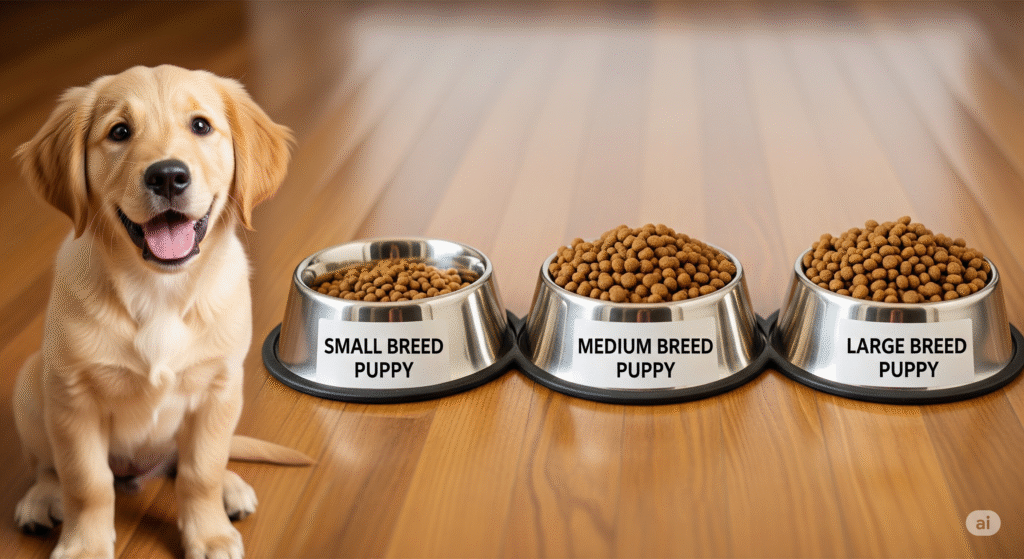
…One of the biggest challenges in the first week is establishing a routine. This includes consistent potty breaks, feeding schedules, and the very beginnings of obedience training. Every breed responds differently, and for high-energy, intelligent dogs, a structured approach is key. Our complete Golden Retriever puppy guide for care & training offers a detailed schedule and tips to help you build good habits from day one.

